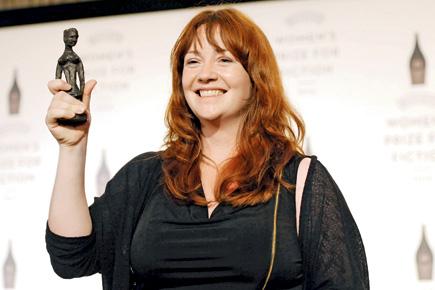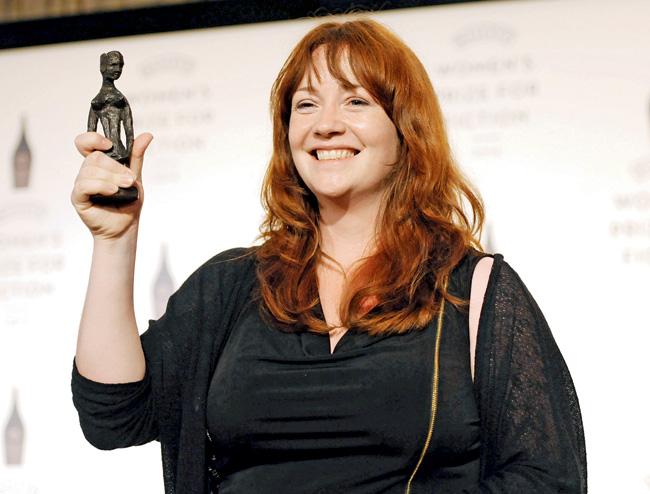Eimear McBride's novel, A Girl Is A Half-Formed Thing, won the Baileys Women’s Prize for Fiction nine years after it was written. Kareena Gianani meets the author at the recently-concluded JLF 2015

Eimear McBride, novel, A Girl Is A Half-Formed Thing, Baileys Women's Prize, JLF 2015, interview
Until 2012, Irish author Eimear McBride thought her life’s most defining incident would be one filled with failure between her terrible temping jobs — seven years of rejection slips gathering dust beside her manuscript in a drawer.
ADVERTISEMENT

Author Eimear McBride after bagging the 2014 Baileys Women’s Prize for Fiction in June 2014. PIC/Getty images
McBride, 37, wrote A Girl Is a Half-Formed Thing when she was 27, and it ended up winning the Baileys Women’s Prize for Fiction last year. At the recently-concluded Jaipur Literature Festival, UN Women presented McBride in conversation with last year’s Booker Prize winner Eleanor Catton (The Luminaries) to discuss the journey of early success.
McBride’s voice in the book is like none other — the prose, written in first person, is the voice of ‘the girl’ (the protagonist has no name) from the age of two, and is fractured with staccato sentences, sans any punctuation except full stops.
McBride, who won the award over established writers Donna Tartt and Chimimanda Adichie, writes of bereavement, religion and its hypocrisy, and the girl’s tumultuous struggle with her sexuality. Excerpts from the interview:
Q. You grew up in Ireland and, like your protagonist, lost your brother to cancer. Was your book meant to be a way to make sense of your loss?
A. Yes, and no. I wanted to write the book because sibling bereavement is not spoken about as much as I think it should be. So you could say it was a starting point. But as I went on writing, the shape the plot took surprised me as much as I hope it surprises its reader.
Q. You have been critical of religion in your book. What was your experience with it like?
A. I was born in Liverpool, later moved to rural Ireland, and grew up in a Roman Catholic household. As I grew up, I didn’t miss the hypocrisy of religion. The disconnect in what was preached and what was practiced wasn’t lost on me. Women were often the ‘sinners’. By the time I was a teenager, I was angry at religion, and found it difficult to keep faith. It was supposed to balm me, but it only complicated matters for me. After my father died, religion was supposed to be a source of comfort, but I struggled on. That’s what reflects in the book, too.
Q. From nine years of oblivion, to here, touring literature festivals — it must be one hell of a change?
A. Yes, I am here after being a nobody and struggling with the wilderness. For those nine years, I was full of anxiety, between horrible temping jobs. I would see all these rubbish books being published…
Q. And what did that tell you about the publishing industry?
A. That nothing has changed. We might believe that experimentation is encouraged, but that’s not the case.
Q. Have you read any Indian authors?
A. No, I haven’t actually. But I would love to read Cyrus Mistry. I heard him speak in Bali, and learnt that he explores themes of humanity, which is what great literature is made of.
Q. Is your next book going to shake readers up just as much as the first?
A. I hope so (smiles). A Girl Is A Half-Formed Thing was about disconnect, but my next book is about connection. That was about loss; this is about love and happiness.
 Subscribe today by clicking the link and stay updated with the latest news!" Click here!
Subscribe today by clicking the link and stay updated with the latest news!" Click here!







